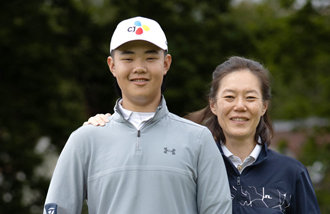[Opinion] Gross Natural Cool
Sasha Issenberg, 27, is an American journalist who fell in love with sushi when a Japanese neighbor served him the dish when he was five. After traveling through 14 countries across five continents over a year and a half and meeting with fishers, fish retailers and Japanese chefs around the world, he wrote a book titled Sushi Economy. To his eyes, a sushi chef is the modern version of a samurai who induces deep pleasure from fish with the blade and bare hands, and who maintains honor and order swaying the knife.
Numerous stories embellish the history of sushi that has evolved from a fast food sold in the streets of Japan in the Edo Period to a luxurious cuisine on menus around the world. Sushi, however, is not the only cultural commodity of Japan that charms people around the world. From Hayao Miyazakis animation, Nintendo games, Haruki Murakamis novels to the architectural works of Tadao Ando, there are countless allures that have transformed Japan from a manufacturing superpower into a cultural superpower a long time ago. This is from which the analysis that what makes Japan an attractive nation is its soft power originates.
In a recent survey, Britains BBC asked 170,000 people in 34 countries about which country they thought had the best image. Germany and Japan shared the top rank. A Times survey last year on the impressions of 12 Asian countries last year also revealed that Japan had the best. Jim Dator, director of the Hawaii Research Center for Futures Studies, University of Hawaii at Manoa, has prognosticated that imagination and creativity will become the essences of national competitiveness as the economic power engine shifts from information to image in the post-information era. That is, in the future, the Gross National Cool (GNC) will replace the Gross National Product (GNP) as the index that tells the wealth of a country. The GNC is an index that calculates the attractiveness of a country.
Chuncheon, Gangwon Province, which gained fame as the center of the Korean Wave thanks to the popularity of the TV drama Winter Sonata, is now empty. In two years, the number of tourists dropped to half. On April 11, Seoul Mayor Oh Se-hoon said he would strengthen the competitiveness of Seoul by way of culture. Culture is not a mere product but the gross sum of invisible values such as peoples lifestyle, preference, aesthetic sense, philosophy and image. However, intense the cries for a culturally strong Korea may be, amateur-level charms will not work. Korea should be able to effuse attractiveness that people of the world hope to see and that can render pleasure, knowledge and delight.
Editorial Writer Heo Mun-myeong (angelhuh@donga.com)







